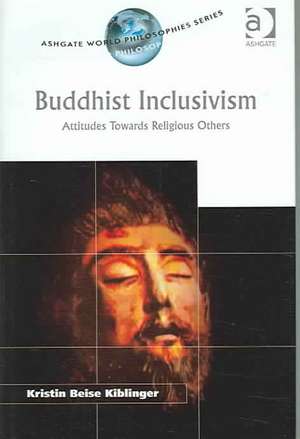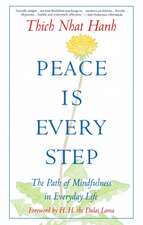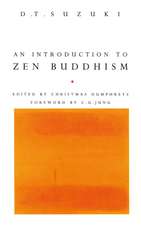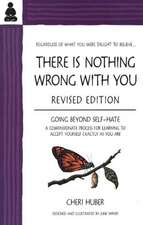Buddhist Inclusivism: Attitudes Towards Religious Others: Ashgate World Philosophies Series
Autor Kristin Beise Kiblingeren Limba Engleză Hardback – 28 apr 2005
Preț: 763.07 lei
Preț vechi: 1026.74 lei
-26% Nou
Puncte Express: 1145
Preț estimativ în valută:
146.02€ • 150.64$ • 121.85£
146.02€ • 150.64$ • 121.85£
Carte tipărită la comandă
Livrare economică 26 martie-09 aprilie
Preluare comenzi: 021 569.72.76
Specificații
ISBN-13: 9780754651338
ISBN-10: 0754651339
Pagini: 154
Dimensiuni: 156 x 234 x 19 mm
Greutate: 0.39 kg
Ediția:1
Editura: Taylor & Francis
Colecția Routledge
Seria Ashgate World Philosophies Series
Locul publicării:Oxford, United Kingdom
ISBN-10: 0754651339
Pagini: 154
Dimensiuni: 156 x 234 x 19 mm
Greutate: 0.39 kg
Ediția:1
Editura: Taylor & Francis
Colecția Routledge
Seria Ashgate World Philosophies Series
Locul publicării:Oxford, United Kingdom
Cuprins
Contents: Why Buddhist inclusivism?; Issues regarding inclusivism generally; Selected examples of inclusivism in Buddhist contexts; Towards a tenable form of Buddhist inclusivism; Case studies of two prominent Buddhist inclusivists; The contrast case of exclusivist Gunapala Dharmasiri; Conclusion; Bibliography; Index.
Notă biografică
Kristin Beise Kiblinger is Assistant Professor at the Department of Religion, Thiel College, USA.
Descriere
Although Christians have well-developed responses to other religions, the counterpart scholarship from Buddhists has thus far lagged behind. Breaking new ground, this book analyzes the currently favored position towards religious others, inclusivism, in Buddhist traditions. Kristin Beise Kiblinger presents examples of inclusivism from a wide range of Buddhist contexts and periods, from Pali texts to the Dalai Lama's recent works. After constructing and defending a preferred, alternative form of Buddhist inclusivism, she evaluates the thought of particular contemporary Buddhists such as Thich Nhat Hanh and Masao Abe in light of her ideal position. This book offers a more systematic treatment of Buddhist inclusivism than has yet been provided either by scholars or by Buddhist leaders.














![The Way of Zen =: [Zendao]](https://i0.books-express.ro/bt/9780375705106/the-way-of-zen.jpg)












